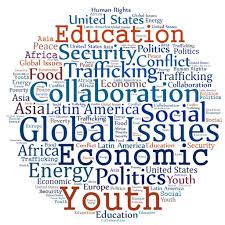Ethical Global Social Service Governance: A Human Rights-Based Approach
The interconnectedness of our globalized world demands a robust and ethically sound framework for governing social services. The attainment of the Sustainable Development Goals (SDGs) hinges on the unwavering adherence to human rights and ethical principles. This article examines the crucial role of these principles in fostering global unity and sustainable development, drawing upon theoretical frameworks such as the Capabilities Approach (Sen, 1999) and Social Contract Theory (Rawls, 1971). We define key concepts: Human dignity refers to the inherent worth and value of each individual; social justice denotes fairness in the distribution of resources and opportunities; and ethical governance signifies leadership and management guided by moral principles and accountability. These concepts will be applied throughout this analysis.
Foundational Principles: Ensuring Equitable Access and Empowerment
Effective social service governance is anchored in several core tenets. First, it acknowledges the inherent human dignity of every individual, irrespective of background. This principle, central to human rights, underpins the creation of just and equitable societies. Second, equality and non-discrimination must be ensured, guaranteeing equitable access to social services regardless of race, gender, religion, etc. This is fundamental to achieving social justice and mitigating inequalities. Third, empowerment is paramount, aligning with participatory governance models. Individuals and communities must actively participate in decisions impacting their lives, fostering ownership and enhancing sustainability. This aligns with the principles of civic engagement and self-determination. Finally, transparency and accountability are crucial. Governments and institutions must be accountable for upholding human rights, a core tenet of the Social Contract Theory, ensuring transparency and safeguarding individual rights through a robust rule of law.
Ethical Practices and the Pursuit of Social Justice: Beyond Legal Parameters
Ethical considerations extend beyond legal compliance. Ethical standards, guided by professional codes of conduct and deontological ethics, direct professional actions, guaranteeing integrity and respect. This directly contributes to social justice by addressing systemic inequalities and advocating for marginalized populations. Specifically, the protection of vulnerable populations (children, elderly, disabled) is paramount, prioritizing their needs and safeguarding their rights. This prioritization reflects the core tenets of the Capabilities Approach, which emphasizes the importance of providing individuals with the resources and opportunities they need to achieve their full potential.
Furthermore, ethical considerations must include environmental sustainability, acknowledging the inextricable link between human well-being and environmental health. Ethical governance, guided by principles of intergenerational equity, necessitates sustainable practices to secure the rights of future generations. Finally, global collaboration is essential for navigating complex global challenges, fostering collective efforts and reflecting cosmopolitan ethics in the pursuit of global well-being.
Implementation: A Multifaceted Strategy for Ethical Governance
Achieving ethical global social service governance necessitates a comprehensive strategy. Skills development is crucial; professionals require training in human rights advocacy, ethical decision-making, and social service management. Education and awareness campaigns are vital to foster shared understanding and active participation. Intersectoral collaboration—between governments, civil society, and the private sector—is essential for building sustainable and inclusive systems, reflecting principles of multi-stakeholder engagement. Benchmarking against global best practices and continuous improvement are paramount, using knowledge sharing and adaptive strategies based on evidence and experience. Ongoing assessment and adaptation are vital for addressing evolving societal needs, central to evidence-based policymaking.
Conclusion: A Collective Endeavor for a Just and Sustainable Future
The success of global social service governance is inextricably linked to a steadfast commitment to human rights and ethical principles. Creating a world that prioritizes the well-being and rights of all individuals necessitates a collective effort. Collaborative partnerships, comprehensive skills development, targeted awareness initiatives, and a dedication to continuous improvement are indispensable for constructing more equitable, inclusive, and ethically sound social service systems, contributing to a more just and sustainable future. Future research should focus on developing and validating reliable and valid indicators to measure ethical governance in social services, and assess the impact of varied governance models on achieving social justice. Moreover, research should examine the practical application and adaptation of ethical frameworks, such as the Capabilities Approach, in diverse socio-cultural contexts and its alignment with diverse ethical perspectives such as those arising from virtue ethics and utilitarianism to enhance social service effectiveness and fairness.
Reader Pool: How can the principles of global social service governance be effectively applied in contexts marked by significant political, economic, and social disparities?






No comments yet. Be the first to share your thoughts!